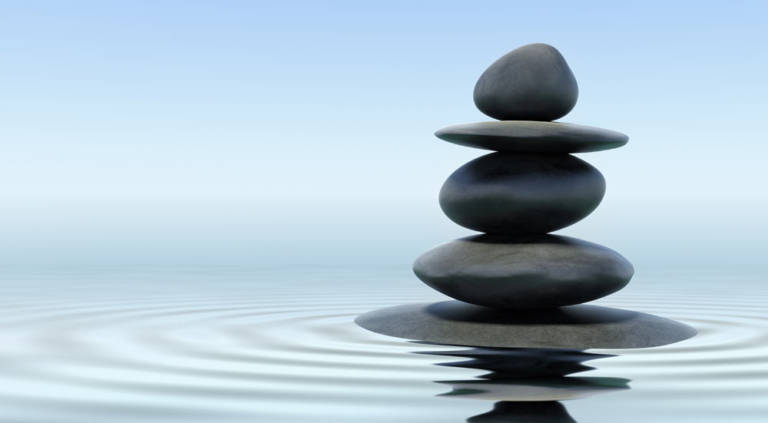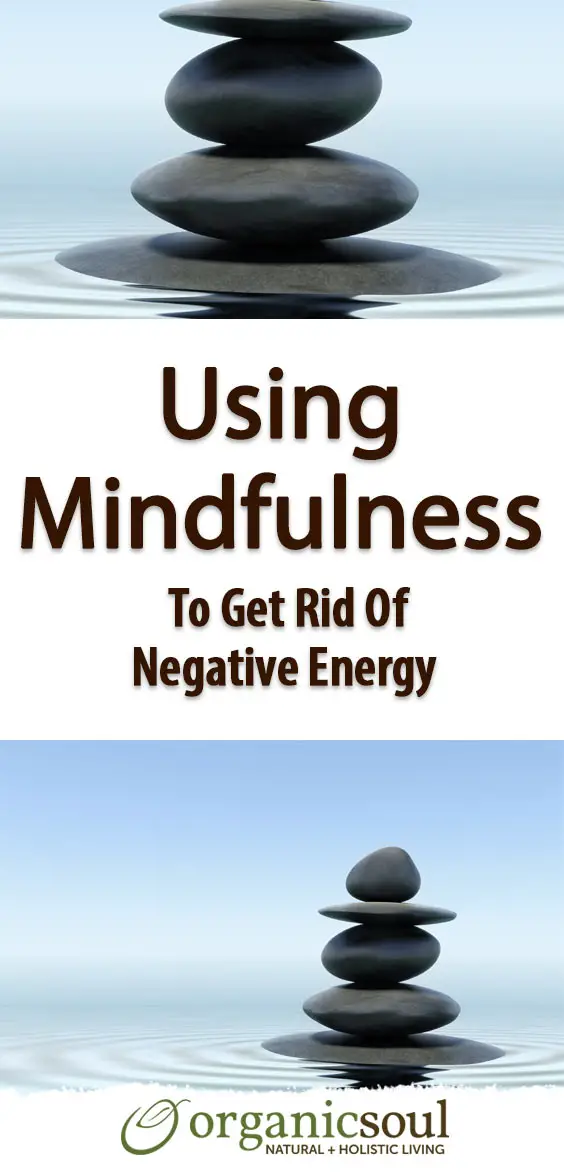
Mindfulness is described by Psychology Today as “a state of active, open attention to the present.” There are many benefits from practicing mindfulness, particularly if your life is littered with negative energy.
Like Organic Soul on Facebook
Incorporating mindfulness into your life allows you to live in the moment and experience everything as it happens rather than focusing on your emotions.
If you speak to yourself in a negative way, it can dramatically interfere with your self-esteem and confidence and lower your quality of life.
Adding mindfulness to your life can help you turn off this negative talk and live a better life. Here's how to do it.
1. Allow Your Mind To Get Away From You
When you start out with mindfulness, it can be hard to stay centered and focused. Experts say this is actually a good thing. It's an important part of learning to be mindful because you have to learn how to bring your thoughts back to the present and teach yourself to stay in the present.
As you work on becoming more mindful, allow your mind to wander a bit, and then practice bringing it back so that you can stay focused on what's happening right now.
2. Try Being Mindful While You Wait
It's no secret that you spend a good amount of your life waiting. Whether you're standing in line at the grocery store or are in the carpool line at school waiting for your kids, take the opportunity to practice mindfulness.
Center your breathing and focus on the in and out of your breath. Go ahead and experience the irritation and frustration that you feel while you wait. Allowing those feelings to be felt can help you lessen the negative hold they have on your life.
While you're concentrating on what you're feeling as you wait, you're blocking out everything else that's going on in your life and that can help you grasp that negativity and figure out how to get rid of it.
3. Focus On What You're Doing
According to the experts, people who strive for perfection are those that can most benefit from mindfulness. If you spend your time feeling like you're not good enough and that your efforts will never measure up, you will notice the benefits of mindfulness pretty quickly.
As you work on the task at hand, be mindful only of what you're doing and not the outcome. As you learn to concentrate on your duties or hobbies, you'll begin to keep the rest of the world at bay, which allows you to live in the moment and not spend that moment worrying about what's coming next.
4. Mindfulness Doesn't Have To Last For Hours
Don't fall into the trap that you have to spend lengthy amounts of time being mindful to benefit. This is simply not true. In fact, experts say that short bursts of mindfulness can be just as, or more, effective than longer sessions.
The magic number seems to be 20 minutes, but you can start small with just a few minutes, several times per day. As you get better at staying in the moment and begin to see the positive benefits that mindfulness offers, you will be able to gradually add more time to your sessions until you have reached the 20-minute mark.
5. Treat Mindfulness As A Luxury
Spending time being mindful shouldn't be considered one more thing on your to-do list. To get the most out of it, mindfulness should be a luxury that you look forward to as part of your self-care routine.
While you can be mindful just about anywhere, setting up a dedicated space for it gives you the space you need to practice the techniques and create a routine around it that makes it something you look forward to.
Don't rule out using mindfulness anywhere, but a comfortable and warm place at home can help you realize the benefits of fighting negativity by being mindful in the proper environment.
6. Try Meditation
You can certainly be mindful in any situation, but experts suggest adding meditation to your routine. This is a dedicated time to focus on your feelings and is the perfect way to practice shutting out negative thoughts and centering on the here and now.
Most people set up a place where they meditate, such as a comfortable chair in their bedroom, a large cushion or a backyard lounger. Where you meditate is up to you, but it should be a warm, comfortable space that is conducive to relaxation and centered thinking.
If you can master the art of meditation, it trains your body and brain to practice healthy mindfulness.
7. Yoga Works Too
Much like meditation is a great way to learn how to be mindful, so too is yoga. Much of yoga involves focusing on your body and breathing. As you breathe and center your body, it's necessary to focus on what you're feeling and what you're doing.
Again, this helps you learn to shut out everything except what you're doing at the moment. In addition to the mindfulness that yoga provides, it also helps you shut out negative thinking and teaches you to concentrate on your body and emotions. The stress relief that yoga provides amplifies the mindfulness benefits that you get.
8. Morning Is An Ideal Time For Mindfulness
Many experts suggest mindfulness as part of your morning routine because your brain isn't worn out by the tasks of the day, and it helps you center on your emotions and set the stage for a good day that isn't affected by negativity.
When you start your day off with mindfulness it sets you up for an increased possibility of doing so throughout the rest of the day. In fact, practicing mindfulness during ordinary daytime tasks helps you truly learn to focus on the here and now, no matter how mundane the task.
 Once you can master mindfulness in any situation, you are truly equipped to battle negativity in your life. Try waking up a few minutes earlier and spend that time being mindful as the perfect way to start your day.
Once you can master mindfulness in any situation, you are truly equipped to battle negativity in your life. Try waking up a few minutes earlier and spend that time being mindful as the perfect way to start your day.
Negative thinking can interfere with a healthy quality of life, especially when that negativity is coming from you. Many people report a significant reduction in negative self-talk when they begin practicing mindfulness.
It will take some time and practice to master the technique, but you will enjoy the benefits as time goes by and you get better at it. Don't let frustration cause you to throw in the towel; simply try again. Staying mindful isn't an easy thing to do, but once you see how much better it makes you feel, you will be more motivated to stick with it.
If you need help with effective mindfulness, seek out a professional who can help you learn the practice and master the methods that allow you to do so on your own, anywhere you happen to be.















